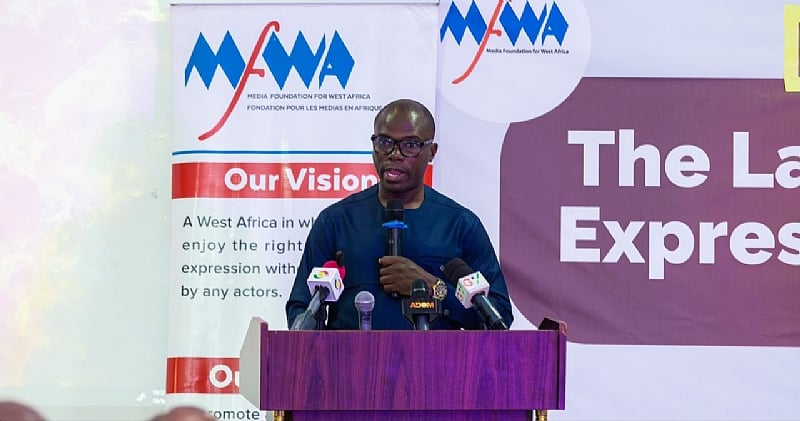The recent Public Forum organized by the Media Foundation for West Africa (MFWA) brought to light the urgent need to address the concerning decline in democratic standards across Africa, particularly in the West African region. The Executive Director of MFWA, Sulemana Braimah, articulated the critical challenges facing democracies, including the suppression of civic voices, shrinking civic spaces, and escalating violence against journalists and activists. He underscored that these issues do not merely undermine democratic governance but also obstruct efforts for sustainable peace and development, ultimately exacerbating the struggles of marginalized communities. Braimah warned that if these issues are not promptly tackled, there could be a further deterioration of democratic institutions, leading West African nations on a perilous path back to military rule.
During the forum, Braimah highlighted the dire necessity for such discussions, which aim to illuminate the pressing challenges within the media landscape and civic freedoms. He emphasized that the continuation of repression against activists and journalists is a grave threat not only to democracy but also to collective societal progress. The MFWA’s initiative to hold this forum was driven by a recognition of the escalating risks faced by civic actors, which inspired discourse on potential solutions and strategies to reverse the current trends. The forum served as a platform to brainstorm ways to combat the evident democratic backsliding and to protect vital freedoms that are essential for a functioning democracy.
The discussion at the forum was complemented by insights from various stakeholders, including Dr. Joseph Whittal, a Commissioner on Human Rights and Administrative Justice (CHRAJ). He commended the MFWA for organizing such a pivotal forum and underscored the need for collaborative action to combat media suppression and violence against journalists. Dr. Whittal’s remarks reinforced the idea that maintaining democracy in West Africa requires concerted efforts from all sectors of society. He praised the longstanding contributions of the MFWA in advocating for media rights and highlighted the importance of collective engagement to address the foundational threats to democracy.
In aligning with this call for unity, a representative from the Ghanaian Ministry of Information, Dr. Palgrave Boakye-Danquah, reiterated the government’s commitment to safeguarding the rights of journalists, activists, and whistleblowers. He acknowledged that attacks on these individuals pose significant challenges to the country’s democratic framework and stressed the need for stronger legal protections. Dr. Boakye-Danquah advocated for a collaborative approach involving various stakeholders to address the growing impunity surrounding attacks on media personnel and to ensure that the voices of truth remain unmuted, thereby strengthening the democratic fabric of Ghana.
As part of its proactive measures, the MFWA announced the creation of the West Africa Network of Activists and Media Defence Lawyers (WANAMDEL), a key initiative aimed at providing support and protection for journalists and activists across the region. This network, consisting of lawyers from 11 West African countries, is intended to act as a first line of defense against oppression and to uphold the rights of those working in challenging environments. By mobilizing legal expertise, WANAMDEL aims to confront the legal and systemic challenges that hinder media freedom and to ensure that activists can carry out their work without fear of retribution or violence.
The forum’s overarching theme, “Countering Legal Obstacles to Media Freedom, Civic Expression and the Fight Against Impunity; Challenges and Prospects,” encapsulated the urgent need for dialogue and action. The discussions highlighted the multifaceted challenges faced by media professionals and civil society actors in West Africa, calling for a unified stand to protect democratic ideals. With continued repression and obstacles to free expression, stakeholders must work collaboratively to promote media rights and accountability, ensuring that the region does not regress in its democratic aspirations but rather strives for inclusive governance that respects and rewards civic engagement.














